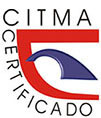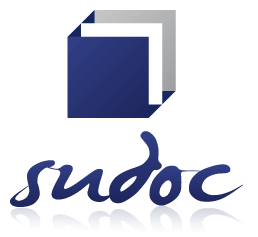About the Journal
Islas Journal is the oldest publication in Cuba outside the capital. Founded in the last quarter of 1958 by Samuel Feijóo, today it has more than half a century of scientific contributions in the field of Humanities, specifically in the field of linguistic and literary studies. Its headquarters are located in the Faculty of Humanities of the Universidad Central “Marta Abreu” de Las Villas. Numerous intellectuals of recognized national and foreign prestige have collaborated and continue to collaborate in its pages.
In spite of the multiple difficulties in Cuba during the last decade of the previous century, Islas has maintained its printed format until today and through the exchange, its archives are found in multiple research or academic centers at an international level. In a constant process of renewal, without giving up the essence of its origin, Islas began the 21st century launching its digital format, initially distributed through electronic support and since 2016 through its online OJS platform.
Due to its wide tradition and recognition in its printed version it was indexed by CLASE (Latin American Citations in Sociology, Economics and Humanities); HAPI (Hispanic American Periodical Index); CCL (Current Contents Linguistik); Historical Abstract; Ulrich's International Periodicals Directory, World Guide to Libraries and in the Annotated Theological Bibliography of the Iberoamerican Area.
As of 2017 Islas is working to join to that tradition a recognition in digital platforms on the internet, which has involved multiple efforts to achieve a symbiosis between its tradition and the new codes proper to cyberspace.
One of the first steps in this direction was the creation of a Scientific Committee made up of prestigious experts, researchers and academics of international recognition who ensure the quality and originality of the contents. In addition, 100% of its scientific articles are peer-reviewed under the double-blind method. In addition, it added the corresponding English translation to the titles, abstracts and keywords.
Currently, the journal devotes ninety percent (90%) or more of the volume of each edition to the publication of original and unpublished articles and the rest to topics related to the historical memory of its Alma Mater or of interest to the humanities and social sciences.
We also have value-added services (alerts, pages in social networks, link guides, among others), which allow us to maintain constant feedback.
Focus and scope
Islas is a journal with six decades of scientific contributions in the field of Humanities and its aims are to disseminate the main scientific results related to Cuban, Caribbean and Ibero-American cultures, from literary, linguistic, editorial, artistic, historical, philosophical, ethnological and cultural approaches, as long as they guarantee a humanistic vision of the objects of study in their treatment. It is a journal that gives particular importance to the historical-cultural development of the central region of Cuba and the other peoples of Ibero-America and the Caribbean.
Its content is aimed at intellectuals, academics and researchers from all over the world interested in participating in scientific debates about our area of knowledge.
Contributions can be original and unpublished and have no other editorial commitments. Likewise, the journal occasionally publishes other texts that, due to the specific interest of the institution or the journal itself, contribute to the preservation of Cuban historical memory.
Frequency of publication
Since January 2023, Islas assumes the continuous publication modality.
In accordance with the tradition of the journal, the issues will be opened in correspondence with the quarters previously established for the periodical publication. The texts will be grouped in cycles of:
January 1 - April 30
May 1 - August 31
September 1-December 31
A single issue will be opened during the period.
Each article will be published once the editing process is completed and in the issue that is open.
At the end of the period the next issue will open.
Texts will be identified with a unique electronic identifier number (elocation-id) instead of sequential pages.
The volume, issue and section identification system will remain unchanged.
On the last page of each article you will have a suggestion on how to cite it.
Advantages
- Reduction between the reception and publication times of a scientific article
- Immediate availability of texts once the editorial process is completed.
- Increase in the visibility of investigations
- Improvement in editorial flows
- Acceleration in communication systems
- Continuous reception of scientific articles.
Now we will be able to publish your research more quickly. Thank you for your collaborations.
The journal reserves the right to publish special or monographic issues in addition to the 3 issues scheduled for the year.
Islas provides immediate open access to its content.
Authors retain the copyright of their work. Submission of a text to the journal implies that all authors have read and accepted the Terms and Conditions of the journal and agree that the manuscript will be published under a Creative Commons license that permits non-commercial use, distribution, translation and reproduction of the document in any medium, provided that the work is properly cited.
In addition, they also agree that the document may be hosted on the journal's website or other journal indexer, from where the full texts of the articles that are published may be read, downloaded, copied, distributed, printed, translated, searched or linked.

















